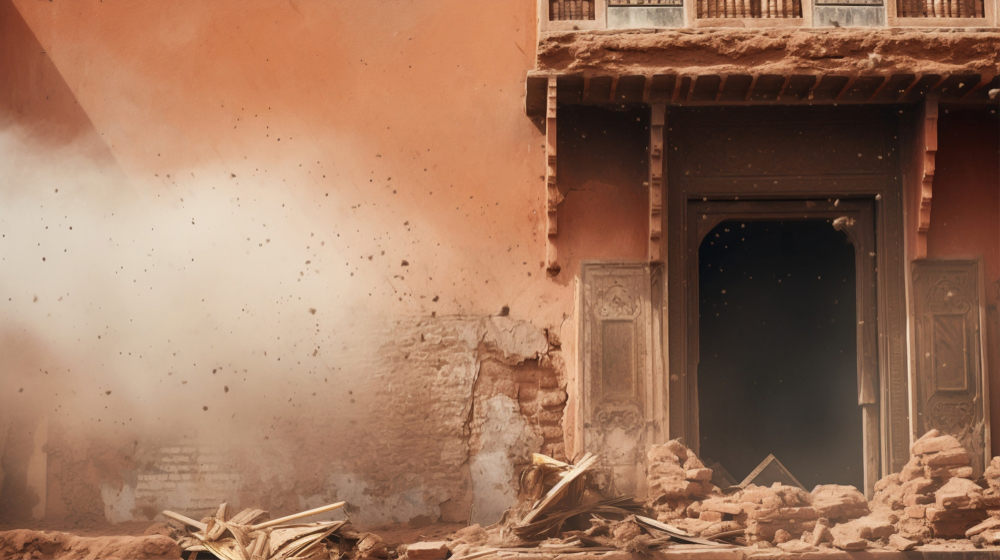Several Israeli attacks on Hezbollah communication systems, aerial attacks on its rocket launchers and caches, assassination of much of the movement’s top leadership and now an Israeli ground offensive form a macabre dance with assaults in the form of relentless Hezbollah rocket and drone attacks on northern Israel, as well as a direct Iranian missile attack more recently. The air hangs heavy with threats of retaliation. By Israel, that promises Tehran a painful response. By the US, which simultaneously says it wants to prevent a regional conflict but also keeps underlining Israel’s right to defend itself. By Iran, that hints at a choice of targets next door if Israel hits back, including US bases in Iraq and Persian Gulf shipping.
In brief, the rapid sequence of events in the Middle East has brought us to a point where they have nearly outpaced available analytical frames and insights. But not quite. While the fog of war makes predictions of what exactly will happen next a fool’s errand, it is nevertheless possible to reflect critically on the current status of the Israeli – Iranian conflict and to outline possible consequences. As a starting point, it is useful to call a few prevailing assumptions into question.
Prevailing assumptions
It is now clear that Israel aims to deal Iran a knock-out blow by first forcing it to respond to the assassinations of Messrs. Haniyeh and Nasrallah, as well as its offensive against Hezbollah, so that it can subsequently react harshly to such a response from Tehran in turn. In other words, the assumption that Israel will tolerate being shot at from several fronts forever is no longer valid. Israel will no longer restrain its offensive action against Hezbollah or Iran out of concern for a ‘missile rain’ either. In fact, it called the bluff of this threat by assassinating Hassan Nasrallah. Iran’s most recent missile salvo did not restore deterrence either since Tehran declared the matter closed immediately afterwards unless Israel retaliates – which is likely to be perceived as a sign of weakness. And Israel will strike back. It does not fear Iran because of US support, because Tehran is domestically weak and because it lacks good military options to inflict real damage on Israel. Israel’s assassination of Mr. Haniyeh in Tehran combined with its mounting assault on Hezbollah was bound to trigger an Iranian response. Tehran’s missile attack just gave West-Jerusalem a reason to finally escalate into the regional war that prime-minister Netanyahu has long sought.
It has also become clear that the US is a conscious and even willing partner in this regional war, elections or not. Otherwise put, the assumptions that the US actually wants a ceasefire in Gaza and does not want a regional war must be discarded, or at least heavily caveated in the sense that the US can support Israel in a regional war with Iran as long as it is not directly engaged itself. The track record of the past twelve months for example suggest that the US never mobilized the kind of effort and leverage necessary to bring a ceasefire in Gaza about because it considered the protection of Israel to be the supreme priority and viewed destroying Hamas as a useful way to give Gaza a governance makeover as basis for a resolution of the Palestinian issue. In the eyes of the world, however, Washington has aided and abetted Slaughterhouse Gaza with its countless but non-productive regional tours of shuttle diplomacy and its reassuring but ineffectual language. With a self-declared Zionist in the White House at this historical junction, US actions for all practical intents and purposes rather point to Washington having joined Israel in an effort to re-establish regional dominance. It is only the extent of this joint project that remains to be established: will it be adequate to undo Iran’s regional network of axis partners, is destruction of Iran’s nuclear infrastructure the aim, or does regime change in Tehran remain on the table? Despite their rhetorical condemnation of civilian casualties in Palestine and Lebanon, most ruling elites across the Middle East probably welcome Israel and the US taking the fight directly to Iran in principle, if not necessarily in practice, due to the many risks. Either way, once accomplished, the US and Israel could formulate a hollow ‘solution’ to the Palestinian issue, which would probably amount to subjugation and autonomous apartheid given their respective stances towards the advisory opinion of the International Court of Justice of 24 July 2024 on the illegality of Israeli occupation, based upon which normalization with Saudi Arabia can proceed.
Put together, just as the US has kept up a good show pretending to want a cease-fire in Gaza, so has Israel given Tehran and the axis a masterclass in the real art of strategic patience, i.e. the ability to absorb limited damage for months on end, but strike back hard and unexpectedly when it could. Israel and the US made Tehran think time was on its side and that it could continue harassing Israel on multiple fronts without substantial costs. The tables have now been turned and Iran faces a real crisis in its regional security policy, and perhaps even serious risks to its homeland security. But in putting Tehran in a corner, the US and Israel are also playing with fire.
About the author:
Erwin van Veen is a senior research fellow at Clingendael’s Conflict Research Unit (CRU).


